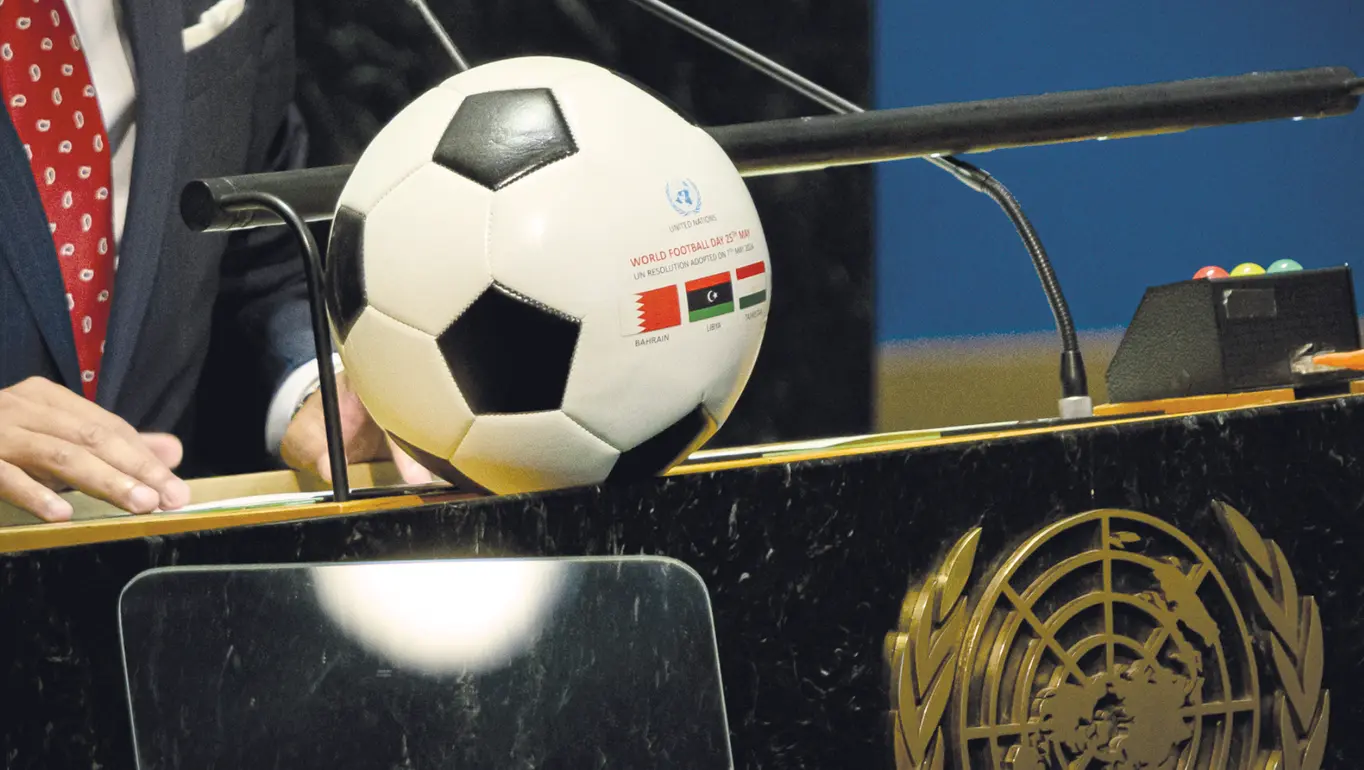In 2000, Nelson Mandela famously stated at the Laureus World Sport for Good Awards that “sport has the power to change the world.” This statement has since been echoed by many peace-through-sport organizations, as the transformative role of sport in driving positive change has gained widespread recognition.
Sports diplomacy has long been a powerful tool for peacebuilding and conflict resolution. It also fosters cultural understanding between nations and serves as a vital form of public diplomacy, evidenced by countries like Australia, the Czech Republic, France, the United States and Wales launching Sports Diplomacy Strategies and appointing Sport Ambassadors.
This is not a new phenomenon, and examples of ‘sports diplomacy’ can be traced back to Ancient Greece, in which the ‘Ekecheiria’ (a treaty among city-states) granted immunity to Olympia, ensuring athletes, artists, and their families could travel safely to and from the Olympic Games – a tradition that continues today as the Olympic Truce. Modern iterations of this include the so-called ‘ping-pong diplomacy’ in 1971 that helped thaw relations between the US and China. Likewise, more recently organizations like Generations Amazing, Generations for Peace, and Peace and Sport have carried out initiatives with deep impact upon local communities. For example, Peace and Sport has organized football matches to promote dialogue, understanding and friendship, such as between Turkish and Greek Cypriot communities in 2019, and Generations Amazing implemented a Mental Health and Psychosocial Support program in Gaza, providing safe spaces where children can “run, play, and express themselves freely” in 2024.
As sport has become increasingly present in international discourse, it is not just NGOs that have aimed to leverage the power of sport to support their missions. The United Nations also recognizes sport’s role in advancing the Sustainable Development Goals and the Pact for the Future (Action 11). Indeed, in 2013, the General Assembly in New York called for UN organizations and other bodies to leverage sport for good, leading subsequently to the establishment of the International Day of Sport for Development and Peace, held every year on 6 April. Likewise, the UN Secretary-General, António Guterres, released a report in 2024 calling for UN organizations to explore ways and means to integrate sport into development frameworks and agendas, particularly along the areas of social inclusion, physical education, sustainable communities, gender equality, peacebuilding and crime prevention.
Less than one month after the International Day of Sport for Development and Peace, celebrated this month on 6 April, the United Nations Institute for Training and Research (UNITAR) jointly with the Japan Sport Council, will host a seminar at the Expo 2025 Osaka, Kansai. This will spotlight the transformative ways in which sport can be used as a catalyst for positive change. This seminar will raise participants’ awareness of the SDGs, through interactive discussions and case study analysis to identify actionable strategies to advance the SDGs through sports. It will also show how to integrate sustainable practices and initiatives in different organizations. The seminar welcomes professionals involved in the sports industry, especially in Japan, ranging from local sports teams to policymakers involved in sports governance and organization.
More and more, those involved in sport are recognizing its diplomatic potential. Whether from the perspective of nation-branding, soft power, or the fulfilment of the SDGs, it is becoming critical for diplomats, especially those working in Permanent Missions in Geneva, to integrate a sporting lens into their work. Equally, for those working in sporting organizations, whether it is one of the many located in the Lake Léman region or around the world, the value of engaging with Member States is clear, for example, when it comes to hosting major sporting events.
Research in the field consistently highlights mega sporting events as some of the most valuable opportunities for sports diplomacy. With the Women’s European Football Championships 2025 soon kicking off in Switzerland, there is an undeniable opportunity to advance women’s football and the participation of women in sport, as well as for nation states, businesses and more stakeholders to come together and engage in sports diplomacy.
With a growing portfolio of activities and having already provided specialized training and capacity-building initiatives to a wide range of stakeholders in the field of sport, UNITAR remains committed and ready to support such efforts. Inherently multilateral, mega sporting events hold the power to bring together a diverse audience. Not only athletes and opposition teams, but also federations, commercial partners, local communities, manufacturers, civil society, national governments, and all those involved in the broader value chain.



